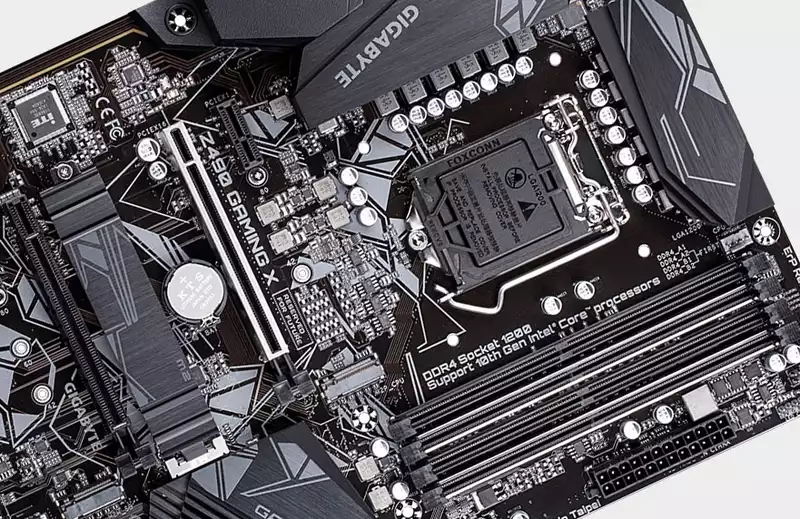Intel may officially announce that Rocket Lake-based 11th generation Core processors will be introduced to desktops in March. At this point, you can circle your calendars.
The first semi-confirmation came from an MSI customer support representative a few days ago, who said that Rocket Lake would be available by the end of Q1, basically the end of March. They later updated this post, claiming that this was purely based on rumors circulating.
Customer support representatives sometimes get these things wrong, but this time that does not seem to be the case. This is because Gigabyte announced in an official press release that the Z490 motherboard "perfectly supports" Intel's next-generation CPUs. [All Z490 motherboards with PCIe 4.0 hardware design can be updated to the latest F20 BIOS to perfectly support the 11th generation Intel Core processors and provide exceptional bandwidth and performance for PCIe 4.0 graphics cards and SSDs. Gigabyte writes.
And in the second paragraph, Gigabyte states that "the latest 11th generation Intel Core processors will be available in March 2021.
In other words, barring any last-minute delays, Intel will roll out Rocket Lake to desktops (designated with an S, as in Rocket Lake-S) in just over two months from now. This announcement will come with a new 500 series chipset (probably the Z590), but Rocket Lake will use the same LGA 1200 socket as the 400 series, making it slightly backward compatible.
According to Intel, Rocket Lake is poised to deliver double-digit improvements in IPC (instructions per clock) performance. Despite being another iteration of Intel's 14-nanometer node, it is still a major new architecture and comes with several advantages. Namely, Rocket Lake will finally introduce PCI Express 4.0 support (up to 20 lanes) to desktops, a feature that AMD has already adopted in its X570 and B550 platforms for Ryzen.
This is a big advantage for users who want to install fast PCIe 4.0 SSDs, the latest of which boasts a transfer rate of about 7,000 MB/s. As for GPUs, the PCIe bus is not much of a bottleneck for graphics cards, as they can be used to transfer data at a rate of up to 20 MB/s.
Speaking of graphics, Rocket Lake also features a pair of Intel Xe GPU cores, as Intel did with its mobile Tiger Lake lineup. While serious gaming still requires a discrete GPU, it is possible to play the latest games with Xe graphics, as seen on laptops. However, desktops will not have as many Xe GPU cores as mobile trims.
The bigger question, however, is how the Rocket Lake CPUs stack up against AMD's Ryzen 5000 series. This will depend on whether Rocket Lake actually delivers the IPC gains that Intel is promising. Price and availability will also come into the equation, but hopefully by March PC hardware shortages will be a thing of the past.


Comments